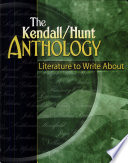 | William Shakespeare - 2001 - 304 páginas
...With true-love showers. How do ye, pretty lady? Well, God 'ield you. They say the owl was a baker's daughter. Lord, we know what we are, but know not what we may be. God be at your table! Conceit upon her father. Pray you, let's have no words of this. But when they ask you what it means,... | |
 | Kenneth Muir - 2002 - 260 páginas
...the king: King. How do you pretty lady? Ophelia. Well, God dild you! They say the owl was a baker's daughter. Lord, we know what we are, but know not what we may be. God be at your table ! King. Conceit upon her father. (1v, v, 41-5) The usual gloss on the baker's daughter turned owl is to the... | |
 | William Shakespeare - 1995 - 340 páginas
...vero amore. RE Come state, bella fanciulla? OPHEL1A Well, God dild you! They say the owl was a baker's daughter. Lord, we know what we are, but know not what we may be. God be at your table ' K1NG Conceit upon her father OPHEL1A Pray let's have no words of this, but when they ask you what... | |
 | Vijay K. Garg - 2002 - 448 páginas
...bounds of Q(TVlogTV) see Burns [BurS0] and Pachl. Korach, and Rotem [PKR82]. Chapter 10 Global State We know what we are, but know not what we may be. - William Shakespeare 10.1 Introduction One of the difficulties in a distributed system is that no... | |
 | Richard Alan Krieger - 2007 - 344 páginas
...something to feel important about is almost the greatest tragedy a man may have." — Arthur Morgan "We know what we are, but know not what we may be." — Shakespeare "Nothing is so terrible than activity without insight." — Carlyle "Everyone excels... | |
 | Claire McEachern - 2002 - 310 páginas
...many a beast in a populous city, /And many a civil monster' (4.1.61-2). When the mad Ophelia says, 'We know what we are, but know not what we may be' (4.5.44), she is recalling not only the baker's daughter who became an owl but also the refined prince... | |
 | Stephen Blaha - 2002 - 324 páginas
...history at which we now find ourselves. With it we can perhaps see a bit into the future realizing that "We know what we are but know not what we may be." 2. Toynbee's Theory of Civilizations The fundamental similarity in the purposes of all civilizations... | |
 | K. H. Anthol - 2003 - 344 páginas
...showers." King. How do you, pretty lady? 40 Oph. Well, God 'ild you! They say the owl was a baker's daughter. Lord, we know what we are, but know not what we may be. God be at your table! King. Conceit upon her father. 45 Oph. Pray you, let's have no words of this, but when they ask you what... | |
 | Sharon Hamilton - 2003 - 196 páginas
...(IV.v.159-60). But Ophelia herself suggests more complex causes for her insanity. "Lord," she muses, "we know what we are, but know not what we may be" (ll. 43-44). The other subject of her mad songs, besides bereavement, is seduction. In the Saint Valentine's... | |
 | Carolyn Dever - 2004 - 502 páginas
...in practical terms, in legal terms, and, in a more abstract context, epistemologically. Greer wrote, "We know what we are, but know not what we may be, or what we might have been. The dogmatism of science expresses the status quo as the ineluctable result... | |
| |